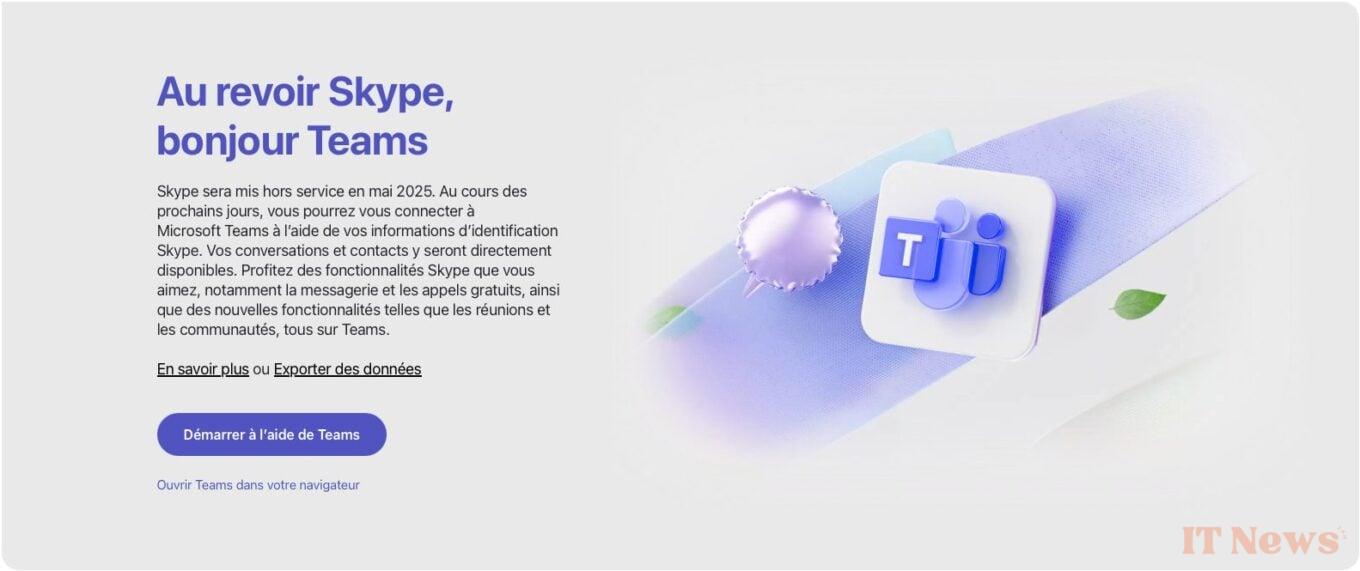Skype is no more. The videoconferencing application, owned by Microsoft since 2011, is closing its doors for good, without fanfare. It must be said that the platform had been a shadow of its former self for several years already. The end of an era, then, for many Internet users who discovered the joys of the internet, chat, and video calls during the 2000s.
The competition got the better of an outdated Skype
The death of Skype is not a big surprise. In December, Microsoft removed two historic features from the application, thus starting to dig the grave of the utility that had already lost its luster for several years.
The end of Skype was then announced a few months ago by Microsoft, directly in the application code, before being made official directly on the dedicated support page.
Skype Business users can therefore rest assured that their precious videoconferencing software will remain functional. For average users, unfortunately, they will have to opt for an alternative solution.
Born in 2003, Skype was first bought by eBay in 2005, before ending up in the hands of Microsoft in 2011. The Redmond firm, which had then spent some 8.5 billion dollars to buy the software, then buried its Windows Live Messenger (formerly known as MSN Messenger) in order to integrate it into Skype and bring all users back to it.
Over the years, Microsoft has tried as best it could to update Skype by integrating new features, without ever really succeeding and propelling Skype back to the top position against certain competitors like Google Meet and Zoom, which have managed to establish themselves in this sector. Microsoft did try, in 2020, during the Covid lockdown, to innovate by offering video calls in Skype without registration, but without managing to capture users' attention.
Skype replaced by Microsoft Teams
Since then, the application's decline has been constant. It must be said that Microsoft had another, more ambitious project in mind: Microsoft Teams. With its new collaborative messaging application, originally designed for businesses, the Redmond firm had a much more comprehensive solution than Skype. It is no coincidence that the company was already planning to replace Skype with Teams in Windows 11 as early as 2021.
The rest of the story will undoubtedly have proven Microsoft right. By releasing a free version of Teams, aimed at the general public, the Redmond firm no longer had any reason to burden itself with a Skype whose features are far too limited. One thing is now certain: Skype orphans will, if they haven't already, automatically switch to Microsoft Teams. They will be able to use their usual Skype credentials to log in to Teams, and will find their conversations and contacts there.




0 Comments